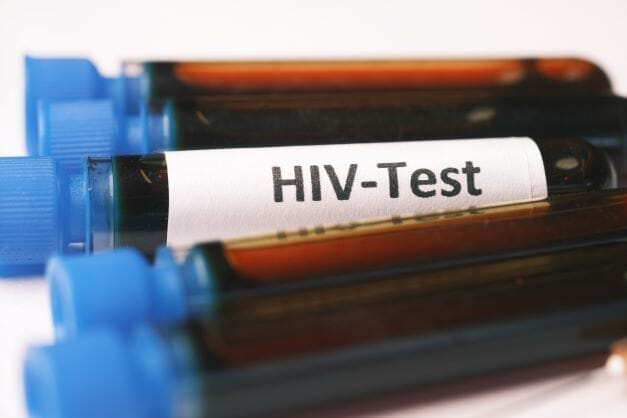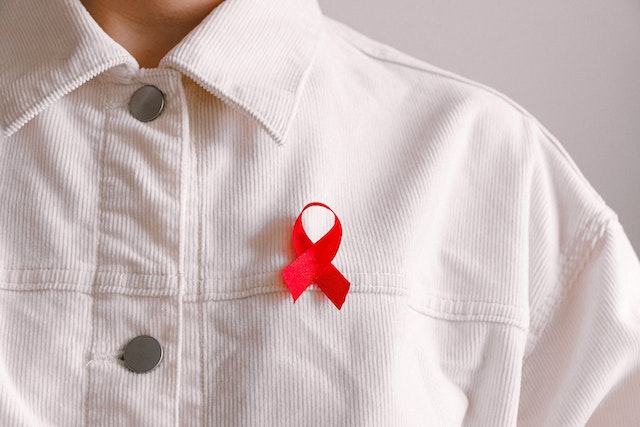
Can HIV be cured at early stage?
Time to read 8 min
Time to read 8 min
While there is no known cure for HIV, an early diagnosis and treatment can help in controlling its impact on the immune system. By getting tested quickly and ensuring timely treatment, you can lower your risk of developing AIDS and significantly weakening your immune system.
When it comes to the question of "Can HIV be cured at early stage?", it is important to know what is your HIV status. You should begin with a complete HIV and STD test if you suspect that you may be at risk. It is important to not wait until you start developing symptoms, as these can take several weeks to develop.
By getting an HIV test done immediately, you can control the spread of the infection through the administration of antiretroviral therapy (ART) regimens. This can help prevent the weakening of the immune system, allowing you to manage the condition long-term.
The first stage of the HIV infection called acute HIV develops within 2-5 weeks of the infection. This is when you can start to experience the symptoms of the virus in your body, along with flu-like symptoms that can last long-term. You can get fever, body aches, rashes, weakness and other chronic symptoms during the early stage.
One of the most important aspects of understanding if you have HIV is analysing your symptoms. Through the right medical tests and symptoms recognition, you can be in a better position to know your risk factor. While some symptoms can take a few weeks to emerge, many can stay hidden for years.
It is vital to be mindful of what symptoms you are experiencing, especially if you are at higher risk of contracting HIV. Some of the most common symptoms are fever, rashes, and throat issues. These can persist for several weeks, and may continue to remain even after medication. With the HIV virus attacking your immune system, you may be at higher risk of contracting secondary infections.
You can also experience chronic tiredness, which is another common symptom of HIV. This can feel like the lack of vitality and low energy levels throughout the day. Your body may not be functioning at optimal levels, which is why you are experiencing a sensation of extended tiredness. Joint and muscle pains can also be critical indicators, especially if you already suspect that you have HIV.
You can also have swollen glands, which is a critical sign that you should get checked out immediately. Your immune system may be weakening over time, leading to the formation of these symptoms. Your immunity may continue to worsen, and you may be more susceptible to other symptoms that can escalate with HIV.
It's vital to note that these symptoms can arise without the risk of HIV as well. Your general immunity is diminished when you have HIV, which is why you experience these symptoms over time. They can also worsen or widen in effects based on the multiplication of the virus in the body as well.
After the initial early stage symptoms of HIV, you may start to develop more complex later stage symptoms as well. At this point, it is important to start your treatment and get the right help as required from your doctor. With your immune system significantly weakened, you can experience critical weight loss in the form of bone density or muscle loss.
You can also experience chronic diarrhoea and a lack of nutritional absorption from normal diet and routine. This can lead to subsequent deficiencies that need to be addressed with supplementation and secondary processes. Night sweats and painful body aches can also be experienced by individuals with critical symptoms of HIV.
Your risk of developing complicated life-threatening diseases also rises if you have HIV that is left unchecked. Your immune system is critically damaged at this point, and you can be at risk of developing a wide range of life-threatening conditions. That is why early diagnosis is recommended, as soon as you suspect that you may be at risk.
Unlike other infections, HIV doesn't spread through the air. It cannot be easily passed on from one person to another similar to other types of infections and diseases. You can get HIV from another person if you are exposed to fluids that carry enough viral load to infect someone. Semen, menstrual blood, breast milk, blood, and anal lining, can carry enough viral load.
Your risk of getting HIV from kissing, spit, bites, sneezing, and other similar ways is low as there is no transfer of load carrying fluids. Contact through blood, via open wounds, can lead to the transfer of the virus. You need to get tested early if you suspect that you may have the virus through these transmissions.
Your risk of HIV escalation and severe compromising of your immune system rises when you don't have clarity through test results. You can track your symptoms over time, but they may vary from week to week, giving your immune system lesser time to recover. Your overall health and productivity can also deteriorate significantly when you have HIV.
You can also develop AIDS at the later stage of HIV, which is a critical condition that requires consistent treatment. At the late stage, your immune system is critically compromised, leaving you susceptible to a wide range of infections and diseases. Your risk of developing AIDS also rises when you don't test for STDs early.
You can buy an HIV test online and have it check your blood sample in an NABL certified laboratory. Your home sample collection makes it convenient to test your HIV status and viral load with medical clarity. You can also protect yourself and others with the testing information you receive and start your treatment.
There are multiple ways of contracting the HIV virus, which is why it is important to be careful when in high-risk situations. You can also get a frequent STD test to ensure that you are safe when in high-risk situations. One of the main causes of HIV is through sexual contact. Unprotected intercourse can increase your risk of HIV, which is why it is important to always wear protection.
You can also get HIV from sharing needles or being pricked by one. That is why it is important for healthcare workers, volunteers, and other individuals to be careful around syringes and open needles. They may carry the virus which can enter your blood stream from a prick. If you suspect that you may be at-risk then you can buy an HIV test to verify your risk.
Another cause of HIV infection is through a partner who has HIV themselves. Your partner may not be aware of their HIV status, which is why it is important to stay protected when entering new relationships. Insisting on an STD check-up through an at-home STD test can also help lower your risk of HIV and other STDs.
Babies born from mothers with undetected HIV can also get the infection. They are born with the virus and require immediate treatment. However, the risk of the child getting the virus lowers significantly if the mother detects and starts taking the right medication earlier. That is why in many cases, early detection is the right way ahead for anyone suspecting HIV.
There are three major types of tests for HIV, namely antibody, antigen, and NAT tests. An antibody test checks for antibodies developed to HIV within a person's bloodstream, indicating the presence of the HIV virus. You can check for the presence of the virus within 24 to 90 days of exposure, which is why early testing is always recommended.
Your test will indicate the presence or absence of HIV, along with key insights about next steps. You can share your report with your doctor and start your treatment. It is important to get treatment in a timely manner so that you can lower your risk of developing AIDS and other HIV related complications.
The right way is to get an HIV test from MyDiagnostics. You can buy an HIV test at home through our platform and get a blood test done to determine your risk of HIV. Your results are also privately shared via email, giving you enough information to make an informed decision.
The results of an HIV test can take a day or two, depending on the type of test opted for. You can get your results emailed to you directly as well, ensuring complete privacy and data protection. You can place an order for an at-home sample collection test through our platform and get your report generated on your registered email ID.
The test will provide information on your current HIV status, which will help your healthcare specialist get started with a treatment and further testing protocol. You can also take medication for your specific symptoms so that you can prevent escalation in your fever, rashes, body aches, etc.
The most important factor in managing HIV long-term is to initiate treatment as soon as possible. You can get an HIV test done at-home and receive your partial results within 24-48 hours, giving you clarity on your HIV status.
You should start your treatment immediately even if you are healthy and aren't showing critical symptoms. The sooner you start your treatment the lower the risk of spreading and virus growth. It is also important to start treatment sooner so that you can protect yourself and others.
There are several health benefits of starting your HIV earlier, which is why doctors recommend that you get tested quicker. You can get a complete HIV and STD test at MyDiagnostics and learn more about your HIV status through a medical test at-home.
By ensuring that you are compliant with your HIV medication, you can keep your viral load low. This enables you to keep the condition under manageable limits, as you continue your medication long-term. Viral suppression at 200 copies of HIV per millilitre of blood can be achievable.
If you adhere to your HIV medication, then you can lower the risk of virus multiplication in the body. While there is no cure for HIV infection, the virus can be managed with the right medication. Skipping medication can introduce risk of multiplication.
One of the most important aspects of the virus is ensuring undetectable viral load, which helps protect others and yourself. By catching the condition early with HIV testing and initiating timely treatment, you can ensure that you are virally suppressed.
For people infected with HIV, it is important to adhere to timely medication protocols and prevent weakening of the immune system. With the right antiretroviral therapy you can protect your immune system to improve longevity. You can review the results in the blood test to check if your viral load is increasing or decreasing.
*Medical Disclaimer - The following information is for educational purposes only. No information provided on this website, including text, graphic, and images, are intended as substitutes for professional medical advice. Please consult with your doctor about specific medical advice pertaining to your condition(s)

